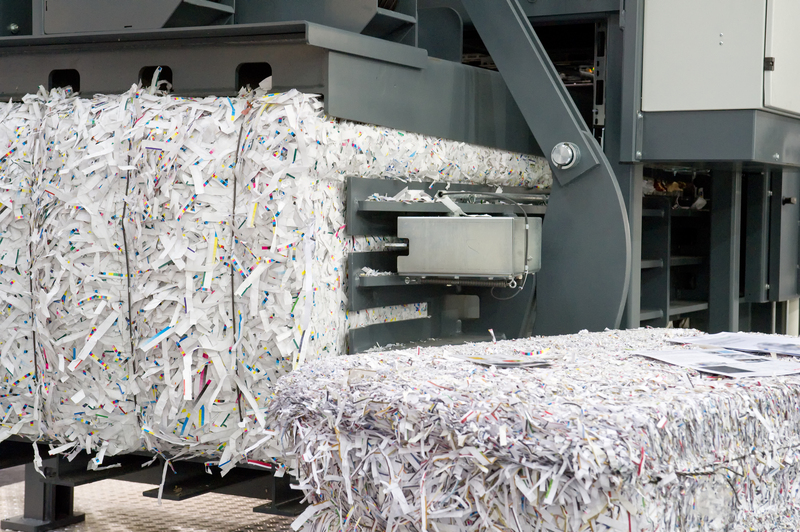Eco-Friendly Solution for London's Waste: Mattress Recycling
Posted on 10/11/2024
In a bustling city like London, waste management is a major concern. The population of over 8 million people produces a significant amount of waste, and one item that often ends up in landfills is mattresses. These bulky, non-biodegradable items take up valuable space and can have harmful effects on the environment. However, with the growing trend of eco-consciousness, many companies and organizations are now offering an eco-friendly solution for London's waste: mattress recycling.
Mattress recycling is the process of breaking down old or unwanted mattresses into their raw materials and reusing them in new products. This prevents them from ending up in landfills and reduces the need for new resources to be extracted from the earth. In this article, we will explore the benefits of mattress recycling and how it's becoming a viable solution for managing London's waste.
The Environmental Impact of Mattress Waste
While mattresses may seem harmless, their impact on the environment is significant. An average mattress takes up about 23 cubic feet of landfill space, which could otherwise be used for more sustainable purposes. The materials used to make mattresses are also harmful to the environment. Foam, synthetic fabrics, and metal springs take years to decompose and release toxic chemicals into the soil and water.
Moreover, according to a government report, nearly half a million mattresses are discarded each year in London alone. With traditional disposal methods like incineration or landfilling being costly and damaging to the environment, it's crucial to find alternative solutions to manage this growing problem.

The Benefits of Mattress Recycling
Recycling old mattresses offers numerous benefits for both the environment and society as a whole. By diverting these items from landfills, we reduce greenhouse gas emissions and conserve natural resources that would be used in creating new products.
Another significant benefit is job creation within local communities. Recycling facilities need workers to sort through materials and operate machinery, creating employment opportunities for the local population. This not only benefits the economy but also contributes to a more sustainable and self-sufficient society.
The Process of Mattress Recycling
The process of mattress recycling involves several steps, starting with dismantling the mattress into its components. Fabrics, foam, springs, and wood are separated and sorted for further processing. The wooden frames can be repurposed as fuel or recycled into new products like furniture. Foam can be shredded and used as insulation or carpet padding.
Metal springs are melted down and reused in various industries, including automotive and construction. Finally, the fabrics are shredded for use in creating new textiles or home insulation. These materials can also be repurposed for charitable causes, such as making clothes for those in need.
Pros and Cons of Mattress Recycling
Like any other solution, mattress recycling has its pros and cons. Some advantages include reduced landfill waste, job creation, and conservation of resources. It also has a positive impact on the environment by reducing greenhouse gas emissions and conserving natural resources.
On the other hand, some challenges include high initial costs of setting up recycling facilities and logistical issues such as transportation of bulky mattresses to recycling centers. Moreover, some critics argue that recycling may still have environmental impacts and that efforts should be focused on reducing mattress waste in the first place.
Tips for Effective Mattress Recycling
If you're interested in doing your part to help reduce London's waste through mattress recycling, here are some tips to keep in mind:
1. Research local recycling facilities: Look for nearby facilities that accept old mattresses for recycling. Many retailers also offer take-back programs where they take away your old mattress when delivering a new one.
2. Donate instead of disposing: If your mattress is still in good condition, consider donating it to charities or shelters instead of throwing it away.
3. Properly prepare the mattress: Before recycling, make sure to clean and dry the mattress to prevent any potential health hazards for workers at the recycling facility.

Takeaways
Mattress recycling is a crucial step towards creating a more sustainable and eco-friendly society. By diverting these items from landfills, we reduce waste and conserve resources while also creating job opportunities. However, it's essential to research and support reputable recycling facilities to ensure that the process is carried out ethically and responsibly.
In Conclusion
The problem of mattress waste in London is a pressing issue that needs an effective solution. Mattress recycling offers a sustainable and eco-friendly alternative to traditional disposal methods. With its numerous benefits for the environment and society, it's a solution that should be embraced by all. So next time you're thinking about disposing of your old mattress, consider the impact it could have on the environment and opt for recycling instead. Together, we can make London a cleaner and greener city for future generations.
Latest Posts
DIY Paper Recycling at Home in 6 Steps
Advance Your Recycling Approach
Plant-Based Plastics: Future Innovations






